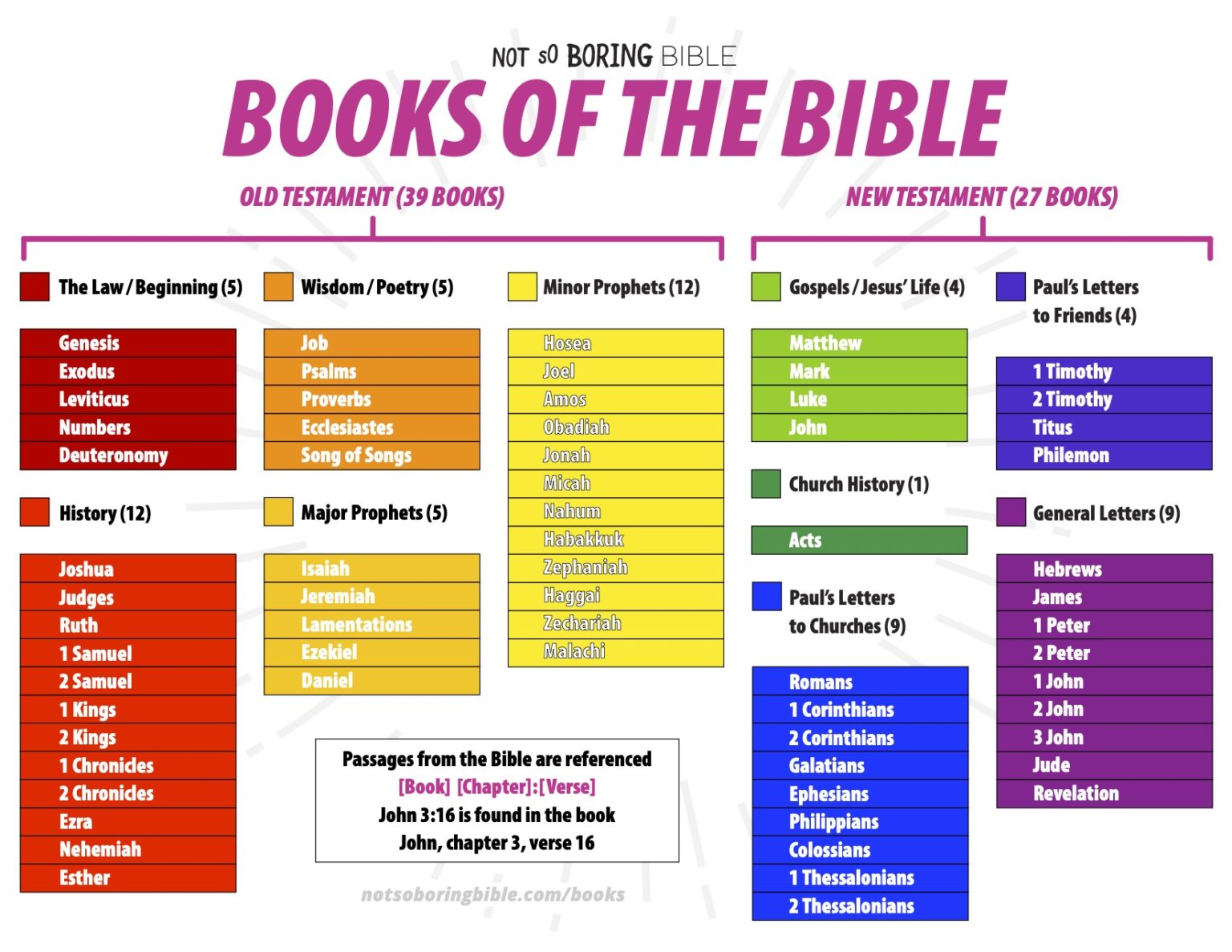Hey there, Bible explorers! If you're diving into the world of scripture and seeking clarity about the 66 books of the Bible and their authors, you've come to the right place. Whether you're a student, a pastor, or just someone curious about the origins of the Bible, this article will be your go-to resource. We’ll break down the significance of each book, explore who wrote them, and even give you access to some handy PDFs for your study sessions. So, grab a cup of coffee, sit back, and let’s get started!
Understanding the Bible can feel like unraveling a massive tapestry, but don’t worry—we’ve got your back. This guide is designed to help you navigate through the 66 books of the Bible and their authors with ease. You’ll learn about the historical context, the purpose of each book, and how they all fit together to form one cohesive story.
Now, buckle up because we’re about to embark on an epic journey through the Word of God. From Genesis to Revelation, we’ll uncover the mysteries behind the authors and the messages they left for us. Let’s make this a fun and enlightening experience, shall we?
- Viral Bread Dip The Hottest Trend In Snack Culture You Need To Try
- What Is An Espresso Martini With Tequila Called The Ultimate Guide To This Trendy Cocktail
Table of Contents
- Introduction to the 66 Books of the Bible
- The Old Testament: A Closer Look
- The New Testament: The Continuation of the Story
- Who Wrote the 66 Books of the Bible?
- PDF Resources for Bible Enthusiasts
- The Historical Context of the Bible
- Tips for Studying the Bible Effectively
- Common Questions About the Bible
- The Significance of the Bible in Modern Times
- Conclusion: Dive Deeper into Scripture
Introduction to the 66 Books of the Bible
The Bible is often referred to as the greatest story ever told, and for good reason. It’s a collection of 66 books written by around 40 different authors over a span of 1,500 years. But here’s the kicker—it’s not just a random compilation of stories; it’s a unified narrative that points to God’s plan for humanity.
When people talk about the 66 books of the Bible, they’re usually referring to the Protestant Bible, which includes both the Old and New Testaments. The Catholic Bible, on the other hand, has 73 books due to the inclusion of the deuterocanonical books. For the sake of this article, we’ll focus on the 66-book version.
So, why is it important to know the authors of these books? Well, understanding the background of the authors helps us grasp the context and purpose of their writings. It’s like reading a letter from a friend—you appreciate it more when you know who they are and what they’re going through, right?
- Gaege Bethune The Rising Star Making Waves In The Entertainment World
- Microneedling Pen Vorher Nachher Results Thatll Blow Your Mind
The Old Testament: A Closer Look
The First 39 Books
The Old Testament consists of 39 books, covering a wide range of genres from historical narratives to poetic writings and prophetic messages. These books were written before the birth of Jesus Christ and focus on God’s relationship with His chosen people, the Israelites.
Some of the key books in the Old Testament include:
- Genesis: The story of creation, the fall of man, and the early history of Israel.
- Exodus: The journey of the Israelites out of Egypt and their covenant with God.
- Psalms: A collection of hymns, prayers, and poems.
- Isaiah: Prophecies about the coming of the Messiah and the judgment of nations.
Each of these books has a unique message and purpose, contributing to the overall story of redemption.
The New Testament: The Continuation of the Story
The Final 27 Books
The New Testament completes the story of redemption, focusing on the life, death, and resurrection of Jesus Christ, as well as the early church’s mission to spread the gospel.
Here are some highlights from the New Testament:
- Gospels: Matthew, Mark, Luke, and John tell the story of Jesus’ life and ministry.
- Acts: The history of the early church and the spread of Christianity.
- Epistles: Letters written by apostles like Paul, Peter, and John to guide and encourage the early Christians.
- Revelation: A vision of the end times and the ultimate victory of God.
The New Testament builds on the foundation laid in the Old Testament, showing how Jesus fulfills the promises made to Israel.
Who Wrote the 66 Books of the Bible?
Now, let’s dive into the fascinating world of authorship. The Bible wasn’t written by just one person; it’s a collaborative effort involving prophets, kings, shepherds, fishermen, and even a tax collector. Here’s a quick breakdown of some of the notable authors:
The Big Names
- Moses: Traditionally credited with writing the first five books of the Bible (Genesis, Exodus, Leviticus, Numbers, and Deuteronomy).
- David: Many of the Psalms are attributed to King David, a man after God’s own heart.
- Paul: One of the most prolific writers in the New Testament, responsible for letters like Romans, Corinthians, and Ephesians.
- John: Wrote the Gospel of John, the Book of Revelation, and several epistles.
While we know the authors of many books, some remain anonymous. However, the Holy Spirit guided each writer to ensure the message remained true and consistent.
PDF Resources for Bible Enthusiasts
Looking for a convenient way to access information about the 66 books of the Bible and their authors? There are plenty of PDF resources available online. Here are a few recommendations:
- 66 Books of the Bible Chart: A downloadable chart that lists each book along with its author and a brief summary.
- Bible Study Guides: Comprehensive guides that provide in-depth analysis of each book, perfect for personal or group study.
- Bible Infographics: Visual representations of the Bible’s structure and themes, making it easier to understand the big picture.
Make sure to download these resources and keep them handy for your next study session. They’ll be a great addition to your Bible study toolkit.
The Historical Context of the Bible
To fully appreciate the Bible, it’s essential to understand the historical context in which it was written. The Old Testament was written during a time when Israel was transitioning from being a nomadic people to a nation with a monarchy. The New Testament, on the other hand, was written during the Roman Empire’s dominance.
Knowing the historical backdrop helps us interpret the events and messages in the Bible more accurately. For example, understanding the Jewish customs and traditions can shed light on Jesus’ teachings and interactions with the Pharisees.
Tips for Studying the Bible Effectively
Studying the Bible can be a rewarding experience, but it requires effort and discipline. Here are some tips to help you make the most of your study time:
- Set a Schedule: Dedicate a specific time each day or week for Bible reading and reflection.
- Use Study Tools: Invest in a good study Bible, commentaries, and other resources to enhance your understanding.
- Pray Before Studying: Ask God to open your heart and mind to His truths.
- Join a Study Group: Engage in discussions with others to gain different perspectives and insights.
Remember, the goal of Bible study isn’t just to gain knowledge; it’s to grow closer to God and live out His principles in your daily life.
Common Questions About the Bible
Here are some frequently asked questions about the Bible and its authors:
Q: How do we know the Bible is true?
The Bible’s reliability is supported by archaeological discoveries, manuscript evidence, and fulfilled prophecies. It’s also been preserved and translated accurately over the centuries.
Q: Why are there so many different translations?
Different translations aim to convey the original meaning of the text in various languages and cultural contexts. Some focus on word-for-word accuracy, while others prioritize readability.
Q: Can we trust the authorship of the Bible?
Yes, the internal evidence within the Bible, as well as external historical records, support the traditional authorship claims. The Holy Spirit also ensures the message remains true.
The Significance of the Bible in Modern Times
Even in today’s fast-paced world, the Bible remains relevant. Its timeless truths address issues like love, forgiveness, justice, and hope, which are as important now as they were thousands of years ago.
The Bible offers guidance for personal growth, relationships, and spiritual development. It’s a source of comfort and inspiration for millions of people worldwide, helping them navigate life’s challenges and find meaning in their existence.
Conclusion: Dive Deeper into Scripture
And there you have it—a comprehensive guide to the 66 books of the Bible and their authors. We’ve explored the significance of each book, the fascinating stories behind their authors, and the resources available to deepen your understanding.
Remember, the Bible isn’t just a book; it’s a living, breathing guide to life. As you continue your journey of discovery, keep asking questions, seeking answers, and applying what you learn to your daily life.
So, what’s next? Why not download one of those PDF resources and start your own study adventure? Or share this article with a friend and spark a conversation about the wonders of the Bible. The possibilities are endless, and the rewards are immeasurable.
- Lainey Wilson Black Jumpsuit A Fashion Statement That Rocks The Red Carpet
- Kevin Durant New Hair The Ultimate Guide To His Bold Transformation


